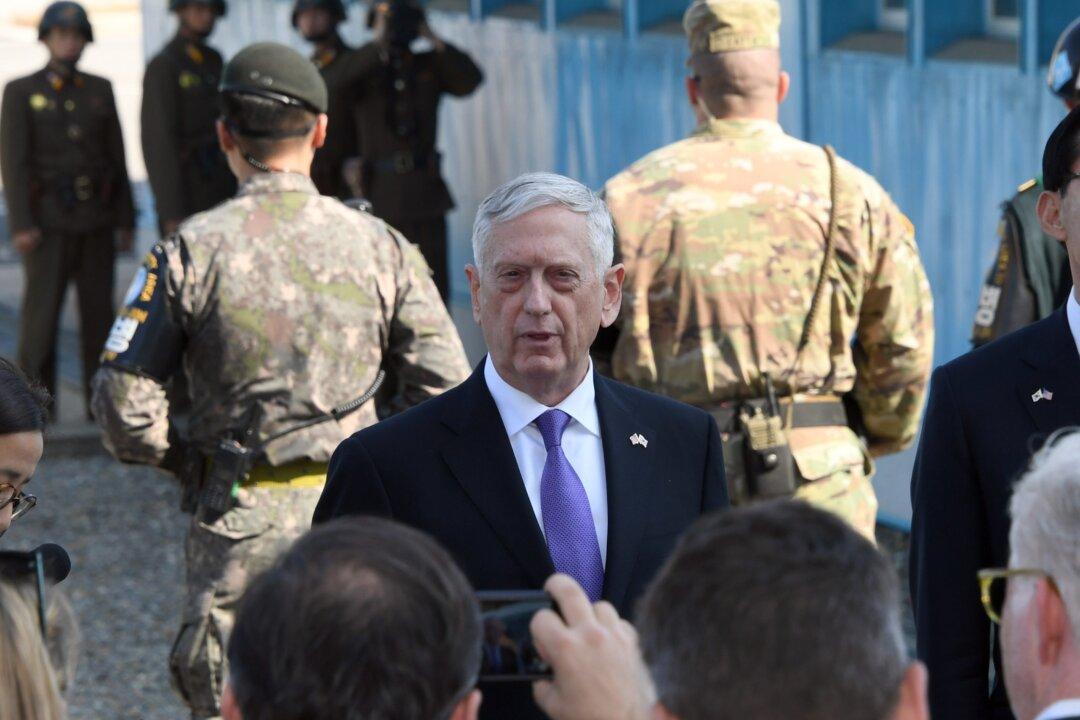Defense Secretary Gen. Jim Mattis said that the United States is not seeking war, but rather a complete denuclearization of the Korean Peninsula.
His comments came as he visited the border between North and South Korea on Oct. 26.


His comments came as he visited the border between North and South Korea on Oct. 26.